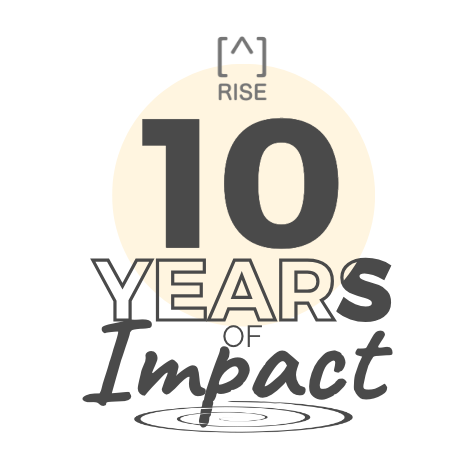The Power of YPO Forum Practices in Organisations
We often get asked where our methodology and practice come from, and the truth is that it is a blend of ancient practices and modern approaches to leadership development and peer learning to support more cohesive, trusting communities and cultures. One significant influence, however, is the YPO Forum process, which Simon Preston, our founder and YPO’s International Chair in 2009/10, had experienced first-hand. Following his tenure in this role, it was clear to him that the principles underlying forums—trust, confidentiality, and shared learning—could be used to help transform organisations as well as individuals. And if members derived huge value personally, they could see how this could be an enabler of culture in their organisations, too.
What is YPO? YPO (The Young President's Organisation) is a prestigious global network of chief executives who come together to learn and grow together. Members tap into each other's collective wisdom as some of the world’s most accomplished business leaders, driving impact across their businesses, personal lives, families, and communities. And, at the heart of YPO is the forum experience, a small group of peers who regularly meet in a confidential and structured environment. These gatherings provide a space to exchange ideas, share experiences, and explore the most pressing challenges with openness and support.
A Millennia-Old Practice
The YPO Forum, with its carefully honed rituals and norms designed for CEOs, is part of a long tradition of people coming together to reflect, share, and address challenges. Human beings have gathered in councils, around fires, or within communities for thousands of years across many different cultural traditions to explore what matters most to them. Over time, these practices have developed structures to support more effective conversations, but their purpose remains unchanged.
At their core, these groups create space for connection and deeper thinking. In today’s business context, forums and peer-learning groups tap into this enduring human need for trust, reflection, and mutual support, particularly in pressing and challenging times.
Why Bring Forum Principles Into Your Business?
Over the last decade, we have worked with leaders, many from YPO, to support implementing and sustaining peer group or forum-like processes across their organisations. (Read our case studies) Rather than viewing these practices as quick fixes, with guaranteed outcomes or tools to “scale,” we work with leaders to use these processes as a way of observing the specific dynamics of their organisations and for getting a better insight into the underlying patterns and stories that shape an organisations culture, for better or worse.
"We implemented our Blue Space Groups with the support of RISE nearly 8 years ago, and they remain a core part of our culture and ways of working together as a senior leadership group."
Andrew Graham, Graham & Brown
Forum practices enable ways of working that bring people into deeper, more thoughtful connection with each other and their shared challenges - not in an abstract or formulaic way, but through repeated interactions where people can listen deeply and speak more honestly about their experiences. This helps teams collectively make sense of what’s happening around them, and in doing so, they often unlock creative possibilities that couldn’t be seen from one vantage point alone.
These processes also expose and address the often-overlooked dynamics of relationships and power within organisations. By deliberately bringing people together to engage with difference—across functions, hierarchies, and perspectives—they begin to see the organisation as a web of interdependencies rather than isolated silos. This can lead to more thoughtful and collaborative ways of being and working together, particularly in uncertain and fast-moving contexts.
The question isn’t simply about whether these practices “work,” but about what kinds of culture they help sustain and what they make possible. In these ongoing supportive conversations, organisations can begin to grapple with the complexity of their challenges in a more collective, adaptive way.
From Principles to Practice
If you’re considering bringing forum-inspired practices into your organisation, the starting point isn’t about following a checklist but paying attention to what’s happening in your context. Here are some considerations for getting started:
- Clarify Purpose
What is it you’re trying to achieve by introducing these practices? Is it about improving the quality of leadership, supporting stronger relationships, or addressing specific challenges? Being clear on your intentions will help guide how you approach this work, but remember that the purpose may evolve as the process unfolds. - Start Small and Build Trust
Rather than rolling out a grand programme, begin with a small group—perhaps your senior team or a mix of people from across the organisation. The group needs to feel like a safe enough space, where participants can speak more honestly and build trust over time. Trust isn’t a given; it’s cultivated through repeated interactions and careful attention to the dynamics in the group. - Prioritise Skilled Facilitation
These processes depend on skilled facilitation to create the conditions for people to reflect, listen, and engage meaningfully. A facilitator—whether internal or external—needs to navigate tensions, hold the group’s attention, and ensure discussions remain thoughtful and inclusive. Without this, the risk is that conversations stay superficial or become dominated by a few voices.
"The facilitation training RISE provided helped us to shift to a self-sustaining model, building capacity across our senior leaders for facilitating conversations in their peer learning groups and in their meetings day to day." Jen Atkins, Chief People Officer - Make it Part of Everyday Life
These practices shouldn’t feel like a one-off or an add-on to “real work.” To have a meaningful impact, they need to become part of the rhythm of being and working together. Regular, intentional conversations signal a commitment to reflection and collaboration and help to normalise deeper ways of engaging with each other. - Adapt as You Go
There is no fixed formula for how this works. What matters is being responsive to the needs of the group and the wider organisation. Pay attention to what’s happening, gather feedback, and be prepared to adjust as you learn. The principles—such as enabling trust, reflection, and collaboration—are universal, but the practices will need to reflect the specific challenges and culture of your organisation.
This kind of work isn’t about implementing a new system or ticking off a set of steps. It’s about creating opportunities for people to engage differently with each other, which requires ongoing attention, experimentation, and adaptation. The process itself is as much about learning as the outcomes it might produce.
The Ripple Effect of Forums
The ripple effect of forums lies not in their ability to deliver predictable outcomes but in how they gradually reshape the culture and relationships within an organisation. As people engage in deeper, more reflective conversations, they begin to question their assumptions, shift their habitual ways of interacting, and notice the complexities of their shared work. Trust builds incrementally, enabling more open and collaborative ways of addressing challenges. This doesn’t just stay within the confines of the forum; it spills into everyday interactions, influencing how people make decisions, approach conflict, and think about their roles in the organisation. The impact is rarely linear or immediately visible—it emerges over time as individuals and groups become more attuned to each other and the realities they face, supporting a more adaptive, cohesive way of working together.
A Call to Action for Leaders
A YPO-style forum process is one of many examples of how peer-learning practices can drive transformation. In a world of increasing uncertainty and complexity, connection and trust are essential. These practices, rooted in human experience, prioritise relationships and reflection, enabling genuine collaboration and adaptive responses to challenges.
Instead of asking whether to adopt a forum-like process, consider the opportunities that arise from creating spaces where people can speak openly, reflect deeply, and tackle challenges together. Start small, experiment, and observe what shifts.
If you want to talk through ways to get started with implementing peer learning in your organisation, download our Peer Learning Playbook or book a call to discuss how we might be able to support you in different ways.
.png?width=120&height=120&name=RISE%20Logo%20(7).png)
%20(1).png?width=133&height=133&name=Compass%20Coasters%20(87%20x%2087%20cm)%20(1).png)

-1.png)
